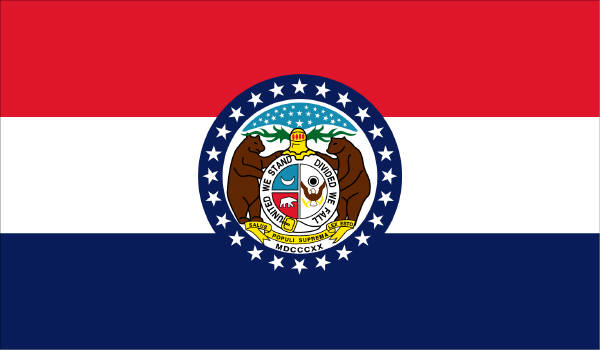Missouri Amendment 2, Food and Drug Exemption from Sales Tax Initiative (1976)
| Missouri Amendment 2 | |
|---|---|
| Election date |
|
| Topic Food and beverage taxes and Food policy |
|
| Status |
|
| Type Initiated constitutional amendment |
Origin |
Missouri Amendment 2 was on the ballot as an initiated constitutional amendment in Missouri on November 2, 1976. It was defeated.
A "yes" vote supported amending the Missouri State Constitution to prohibit the taxation on food purchased at stores and medical drugs and devices. |
A "no" vote opposed amending the Missouri State Constitution to prohibit the taxation on food purchased at stores and medical drugs and devices. |
Election results
|
Missouri Amendment 2 |
||||
|---|---|---|---|---|
| Result | Votes | Percentage | ||
| Yes | 742,627 | 43.35% | ||
| 970,560 | 56.65% | |||
-
- Results are officially certified.
- Source
Text of measure
Ballot title
The ballot title for Amendment 2 was as follows:
| “ | Amendment No. 2- (Proposed by Initiative Petition) Prohibits after January 1, 1978, sales or use tax on food for off premises human consumption or on drugs and devices prescribed for medical treatment. | ” |
Path to the ballot
An initiated constitutional amendment is a citizen-initiated ballot measure that amends a state's constitution. Eighteen (18) states allow citizens to initiate constitutional amendments.
In Missouri, the number of signatures required for an initiated constitutional amendment is based on the number of votes cast for governor in the state's most recent gubernatorial election. In two-thirds of Missouri's congressional districts, proponents must collect signatures equal to 8% of the gubernatorial vote for initiated constitutional amendments. A simple majority vote is required for voter approval.
See also
External links
Footnotes
State of Missouri Jefferson City (capital) | |
|---|---|
| Elections |
What's on my ballot? | Elections in 2026 | How to vote | How to run for office | Ballot measures |
| Government |
Who represents me? | U.S. President | U.S. Congress | Federal courts | State executives | State legislature | State and local courts | Counties | Cities | School districts | Public policy |



